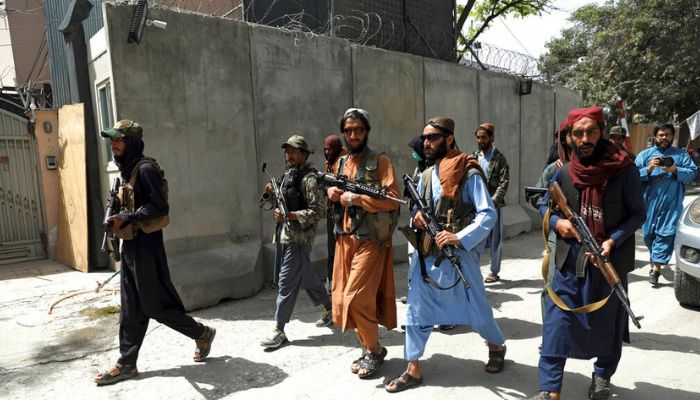An open dialogue with the Taliban
Without open communication and civility, Afghanistan will once again become a hotbed for terrorism
August 18, 2022

It has been one year since the disastrous withdrawal of US/Nato forces from Afghanistan. As expected, the situation in Afghanistan has deteriorated drastically. It is now home to one of the worst humanitarian crises.
Approximately 90% of the population lives below the poverty line. The economy is in dire straits due to poor management and financial sanctions. Women’s participation in the labour market has dropped 16 per cent, and militant groups are continuing to use it as a base for their cross-border operations.
Once in sharp focus of international attention, Afghanistan has been abandoned again. When the Taliban took over, the international community urged them to depart from their extremist ways and adopt a more moderate approach. That didn’t happen. The Taliban’s radical and inflexible attitude has caused tremendous hardship to its citizens. If the Taliban regime wants to increase its legitimacy and bolster its popularity, it would do well to compromise. Asking them to shun their ideology is unrealistic, but within their conservative framework, they can smartly improvise to gain international support, which they desperately need.
Showing no signs of yielding, the Taliban continue to implement their extreme interpretations of Shariah, which keeps women behind closed doors. Banning girls from school beyond grade six is a stark reminder of exactly where Afghanistan is. The Taliban had earlier announced they would reopen high schools for girls but hastily reversed their decision. This U-turn indicates that the radical hard-liners hold tremendous sway. In order to maintain their conservative ideology, the leadership has imposed restrictions on the media and cracked down on peaceful protests. The unwillingness to compromise is a clear indication that the Taliban, at this stage are keener on maintaining their destructive and outdated narrative than engaging with the international community.
Now, what lessons can the US take from the debacle in Afghanistan? The repercussions of protracted warfare and an aggressive attitude towards other powerful countries have been extremely counterproductive. Perhaps the time has come for policymakers and academics to strive towards a new global narrative based on a "Dialogue among Civilizations." Former Iranian president Mohammad Khatami introduced the idea as a response to Samuel Huntington’s "Clash of Civilizations" at the UN. In short, the theory argues that culture, morality, and art must prevail over politics. Given the way events have unfolded over the last thirty years, it is surprising that academics have largely neglected Khatami’s suggestion. Other than the UN proclaiming 2001 as the year of "Dialogue among Civilizations," nothing of great consequence was explored.
An analytical approach towards civilizational politics should be the order of the day with the outcome of building a pragmatic multi-faceted framework that fosters peace, stability, and multiple modernities. With the complexities of the multipolar world, a Western-centric matrix is certainly not desirable. Hubristic military interventions and antagonistic attitudes towards other countries must be replaced with cooperation. The US can continue to put pressure on the Afghan government to make changes, but completely isolating it will only create more instability and disharmony.
With Afghanistan in such an appalling state, the consequences going forward will be dire. Cross-border terrorism will increase significantly, the human condition will deteriorate, and the government will likely become more radical. Perhaps the Americans are playing the "long game," hoping the Taliban government will eventually break down and begin to meet America’s demands. If that’s the case, it is a flawed strategy. The Taliban may be short on money and resources, but they are certainly not short on pride. Having fought so hard to regain power, it is unlikely that they will cave in the near future.
The US has always prided itself on being an effective and versatile negotiator. Every country has their own set of unique values and bedrock principles; however, within that framework, they can certainly show diplomatic flexibility for the greater good. If the Taliban government is expected to compromise, so should the Americans. Having been in Afghanistan for two decades, Americans understand better than most how dangerous the situation is likely to become.
The US owes this to the Afghan people after their horrendous withdrawal last year. Open dialogue with the Taliban will certainly go against their grain, and may even anger some of their Western allies, but without open communication and civility, Afghanistan will once again become a hotbed for terrorism, which will have a deadly knock-on effect. As discussed above, this is also a golden opportunity for academics and policymakers to craft a narrative that focuses on dialogue and cooperation instead of antagonism and scepticism.
The writer is a veteran journalist, political analyst, and author. He can be reached at [email protected]
Originally published in The News











